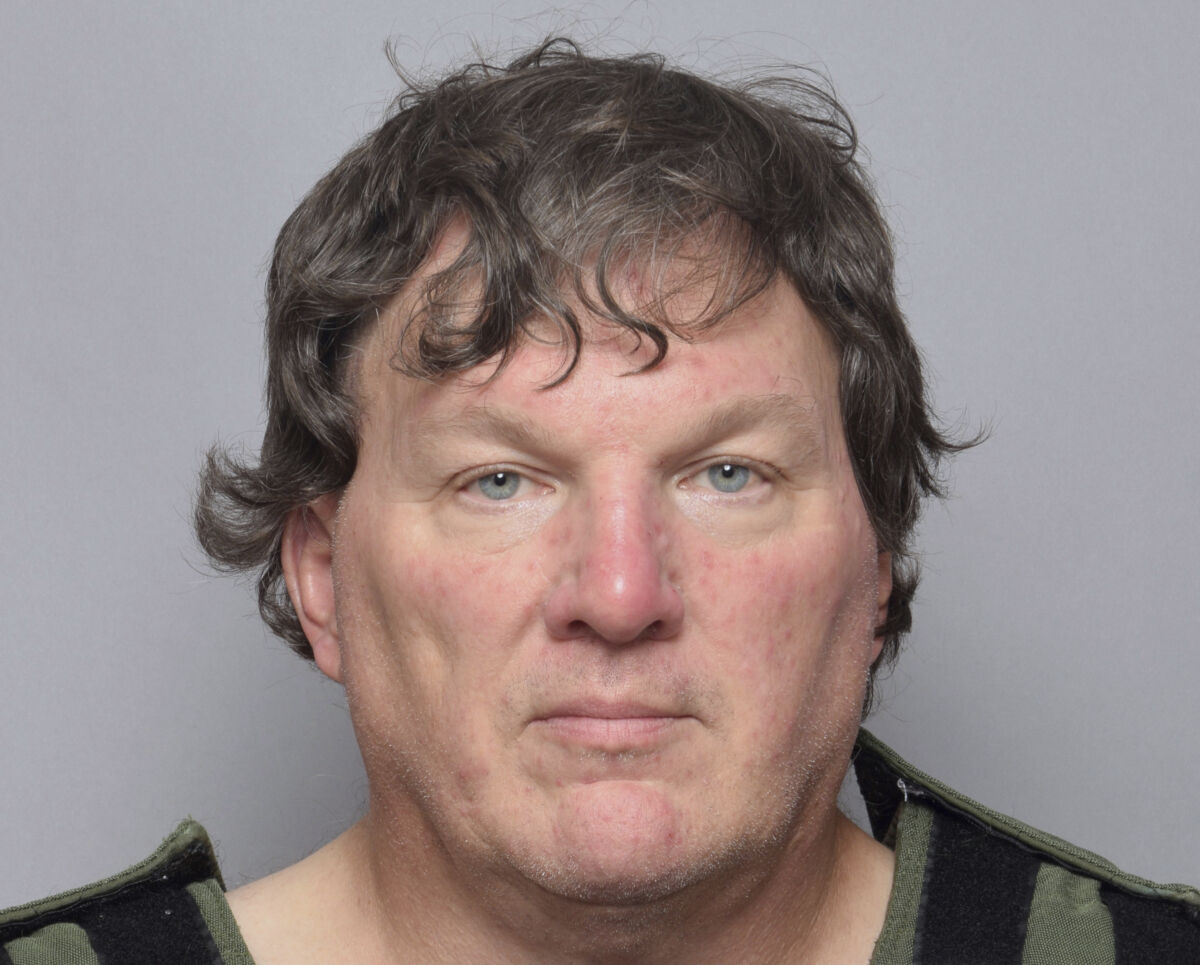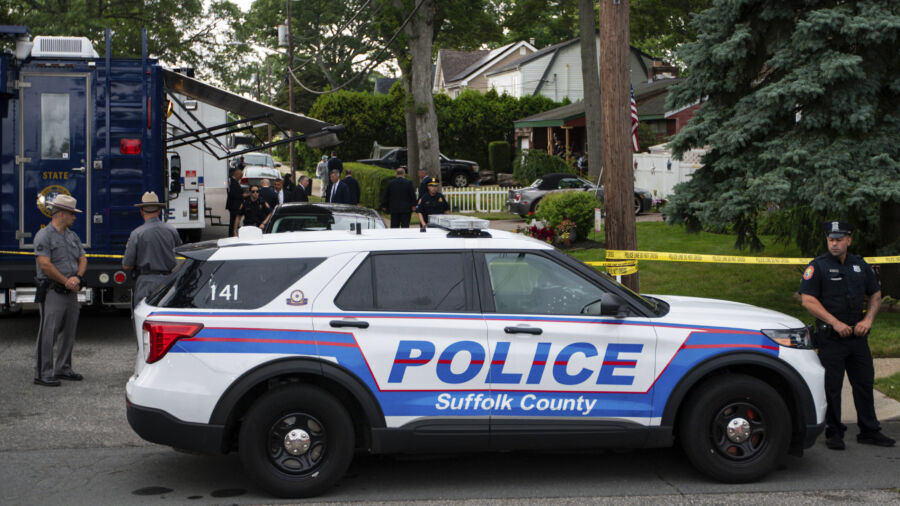RIVERHEAD, N.Y.—A Long Island architect was charged Friday with murder in the deaths of three of the 11 victims in a long-unsolved string of killings known as the Gilgo Beach murders after detectives pursuing a new lead say they matched DNA from a pizza he ate to genetic material found on the women’s remains.
Rex Heuermann, who has lived for decades across a bay from where the remains were found, is charged with killing Melissa Barthelemy, Megan Waterman and Amber Costello. He is also considered the prime suspect in the death of a fourth woman whose body was bound and hidden in thick underbrush along a remote beach highway, authorities said.
Investigators have said over the years that it’s unlikely one person killed all 11 victims.
Mr. Heuermann, 59, was arrested late Thursday amid a renewed investigation that first identified him as a suspect in March 2022, when detectives linked him to a pickup truck that a witness reported seeing when one of the victims disappeared in 2010.
In March, detectives tailing Mr. Heuermann recovered his DNA from pizza crust in a box that he discarded in a Manhattan trash can and matched it to a hair found on a restraint used in the killings, authorities said.
Mr. Heuermann’s lawyer entered a not guilty plea on his behalf Friday in state court in Riverhead. Judge Richard Ambro ordered him jailed without bail, citing “the extreme depravity” of his alleged conduct.
Mr. Heuermann’s lawyer, Michael Brown, said they just learned about the charges Friday morning. Speaking to reporters after the arraignment, he said Mr. Heuermann told him: “I didn’t do this.”
Mr. Heuermann, wearing khaki pants and a gray collared shirt, did not speak in court.

Mr. Heuermann lives in Massapequa Park, a community just north of South Oyster Bay and the sandy stretch known as Gilgo Beach where the remains were found in 2010 and 2011. Most of the victims were young women who had been sex workers. Their deaths long stumped investigators, a mystery that fueled immense public attention and led to a 2020 Netflix film, “Lost Girls.”
Determining who killed them, and why, vexed a slew of seasoned homicide detectives through several changes in police leadership. Last year an interagency task force was formed with investigators from the FBI, as well as state and local police departments, aimed at solving the case.
“Ladies and gentlemen, Rex Heuermann is a demon that walks among us—a predator that ruined families,” Suffolk County police Commissioner Rodney Harrison said. “If not for the members of this task force, he would still be out on the streets today.”
After connecting Mr. Heuermann to the pickup, prosecutors said, investigators were able to link him to other evidence, including burner cellphones used to arrange meetings with the slain women, and taunting calls that a person claiming to be the killer made to one of Barthelemy’s relatives using her cellphone after she disappeared in 2009.
In recent months, Mr. Heuermann sought to keep tabs on the probe and “searched obsessively” on the internet for facts about the Gilgo Beach killings, including the names of women he’s accused of killing, as well as podcasts and documentaries about the case, Suffolk County District Attorney Ray Tierney said.
Mr. Tierney said authorities moved to charge Mr. Heuermann now with three of the killings “out of concern for this defendant fleeing and the danger to the community.” They are continuing to work toward charging him in the death of a fourth victim, Maureen Brainard-Barnes.
Until his arrest, Mr. Heuermann continued to use burner phones, patronize sex workers, and search the internet for sadistic materials, including sexually exploitative images of children, Mr. Tierney said. He also has permits for 92 guns, the prosecutor said.
“This is a day that is a long time in coming, and hopefully a day that will bring peace to this community and to the families—peace that has been long overdue,” New York Gov. Kathy Hochul said during an unrelated appearance on Long Island.
The arrest came as a shock and a relief to some of the victims’ relatives.
“I never thought they’d find this person,” Barthelemy’s cousin, Amy Brotz, said.
Law enforcement personnel converged Friday morning on Mr. Heuermann’s home, a small red house about 40 miles east of midtown Manhattan. Dozens of residents mingled alongside police and media, watching as a half-dozen investigators, some in protective suits, conferred outside the front porch, which was in disrepair, its roof propped up by 2-by-4s.
The home, where Mr. Heuermann has lived since childhood, belonged to a family that had long kept to themselves, neighbors said, noting that the dilapidated property seemed out of place among rows of single-family homes and well-kept lawns.
Barry Auslander said the man who lived in the house commuted by train to New York City each morning, wearing a suit and tie and carrying a briefcase.
“It was weird. He looked like a businessman,” Mr. Auslander said. “But his house is a dump.”
Mr. Heuermann, married with a daughter and a stepson, is a licensed architect with a Manhattan-based firm that, according to its website, has done store buildouts and other renovations for major retailers, offices, and apartments.
“We’re happy to see that they’re finally active, the police, in accomplishing something. Let’s wait and see what it all leads to,” said John Ray, the attorney for the families of two other women whose remains were found, Shannan Gilbert and Jessica Taylor.
Gilbert’s disappearance in 2010 triggered the hunt that exposed the larger mystery. A 24-year-old sex worker, she vanished after leaving a client’s house on foot in the seafront community of Oak Beach, disappearing into the marsh.
Months later, a police officer and his cadaver dog were looking for her body in the thicket along nearby Ocean Parkway when they happened upon the remains of a different woman. Within days, three other bodies were found, all within a short walk of one another.
By spring 2011, that number had climbed to 10 sets of human remains—those of eight women, one man and one toddler. Some were later linked to dismembered body parts found elsewhere on Long Island, making for a puzzling crime scene that stretched from a park near the New York City limits to a resort community on Fire Island and out to far eastern Long Island.
Gilbert’s body was found in December 2011, about 3 miles east of where the other 10 sets were discovered.
By Jake Offenhartz, Michael R. Sisak, and Michael Balsamo

